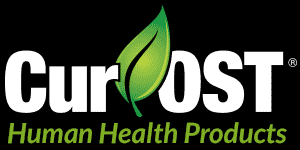The gastrointestinal microbiome consists of over 100 billion micro-organisms per gram of foodstuff or fecal material present in our digestive tract. That is a significant number of bacteria, yeast, and protozoal organisms living together, impacting not just our digestion but our overall health. The gastrointestinal microbiome is becoming a very hot area of research over the past decade with many connections with current day chronic health ailments, but is there a connection with cancer malignancy, specifically breast cancer in women? Could this gastrointestinal microbiome potentially predispose women to breast cancer when it is out of balance or greatly influence progression of the disease?

Breast cancer is one of the most highly diagnosed forms of cancer in women, with over 250,000 new cases being diagnosed in 2017. It is also the second leading cause of death in women, after lung cancer, with an estimated 45,000 women succumbing to the disease per year. It is estimated that over 80% of all breast cancers are diagnosed in the age group of 50 and above, according to the American Cancer Society.
There are different types or forms of breast cancer, but the most common type is a carcinoma or more specifically an adenocarcinoma, which is a cancer of glandular tissue such as the milk ducts or milk producing glands in women. Further, the cancers are classified as being ‘in-situ’, which implies they have not spread and are localized, or ‘invasive’, which implies that the cancer has invaded local tissue and potentially spread to distant regions.
Although enhanced diagnostics techniques and early intervention have become more prevalent, many women still do not benefit and by the time of diagnosis, the disease is well advanced. The incidence of breast cancer has actually risen by 20% and mortality by 14% between the years 2008 and 2012. (1) The American Cancer Society does acknowledge that there are some preventative approaches that can be taken by any woman, that can reduce the risk of breast cancer, which include:
- Maintain a healthy body weight and BMI
- Increase physical activity
- Minimize alcohol intake
- Breast feeding
- Minimizing hormone therapy after menopause
What is interesting, is that according to the ACS website, a healthy diet is not mentioned as a means of prevention, when this is clearly noted to be a benefit in research. The consumption of higher amounts of fruits and vegetables has been correlated with a reduction in breast cancer risk.
All of these recommendations are valuable and should be a part of any healthy lifestyle, impacting not just a reduction of cancer, but many other chronic health ailments. But what about other factors? Is there possibly a connection between the digestive microbiome and breast cancer development in women?
The Digestive Microbiome and Imbalance
The digestive microbiome is an organ system by itself, within another organ system, being our digestive tract. The balance or dynamics that exist between the billions of micro-organisms in the digestive tract either supports or inhibits a state of health, influencing every facet of your health from mood, to increased risk of disease, digestion and nutrient assimilation, and immune function. That balance is impacted by lifestyle and genetic factors present within each individual person. Interestingly, as noted in a prior article, there is also a strong connection between mood or emotions and the microbiome balance or state of health. The gut-brain axis is strong, working in both directions with the gut impacting emotions and emotions impacting gut balance. Although research has not been conclusive to date on the true definition of a ‘balanced’ or healthy microbiome, it has been noted that certain imbalances that are present do contribute to a rise in various health conditions, including cancer.(2)
Considering the vast number of bacteria present within our digestive tract, it can be hard to really focus in on one specific type that is out of balance. More so, research has classified these bacteria into two main groups, phyla, that appear to be important when it comes to balance. These two phyla are Firmicutes and Bacteriodetes, and when they are out of balance with one another, it appears that health problems are more predominant. Interestingly, our diet appears to play a major role in regards to creating an imbalance between the two groups with meat eaters demonstrating higher Firmicutes numbers, while a diet of higher consumption of fruits and vegetables appears to favor Bacteriodetes. Ideally, based on research, you desire a balance between the two and disease conditions can be more prevalent when the pendulum swings from one spectrum to the other.
In a state of health, the bacterial populations are in balance, as this fosters proper digestion and overall health for the host or patient. There are some types of bacteria that are more harmful than others, and in a state of health or balance, those types are usually present in lower numbers. When imbalance occurs, termed a dysbiosis, the more harmful bacteria can increase in numbers and create increased risk of health ailments. This doesn’t occur just because of an ‘infection’, but more so by the byproducts produced by those ‘bad’ bacteria or also by what is not being produced due to ‘good’ bacteria being in lower numbers. To go one step further, you need to keep in mind that every bacteria present contains its own set of DNA, which when activated and expressed in higher levels, due to the imbalance, can dramatically impact the individual.
The Digestive Microbiome and Breast Cancer
Despite extensive and expensive research, the precise cause of breast cancer in women has not been identified, but there have been strong associations made between genetic, epigenetic, and environmental factors. Breast cancer has been noted to be strongly linked with endogenous estrogens and differences in estrogen metabolism in women, with an increased incidence noted in postmenopausal women. (1). Given this strong association between estrogen and breast cancer, bacterial populations within the body have gained some attention as possible sources, specifically the digestive microbiome.
The gastrointestinal microbiome has been strongly linked to the process of internal inflammation in the body, influence of genetic stabilization, and associated with cancer progression by influencing estrogen metabolism. As a result of these findings, the gut microbiome may play a strong role in breast cancer promotion and progression via influence upon the immune response and/or influence upon estrogen production and metabolism in the body. (1,2) The term “estrobolome” refers to the gastrointestinal bacterial gene population that can influence estrogen production and metabolism in the body. Alterations in the balance of the digestive microbiome can therefore lead to increased circulating levels of estrogen in the body and theoretically increase the risk of breast cancer development. (1,2)
To go one step further, there is also research regarding the digestive microbiome and an increased breast cancer risk via ‘non-estrogen dependent pathways’. This implies that the bacterial populations, when out of balance or less-diverse, can increase the risk of breast cancer outside of estrogen production. One route is via the enteric-mammary route, where bacteria from the digestive tract reach and invade the breast tissue, which could be via increased gut permeability or ‘leaky gut’ phenomenon. (1)
Pathways to Cancer Development and the Microbiome
The gastrointestinal microbiome is a complex organ system of billions of bacteria, ideally living in a state of balance as a result of proper lifestyle factors, along with genetic and epigenetic influences. The gastrointestinal microbiome can influence cancer development via 3 main mechanisms: (1)
- Regulation of Chronic Inflammation and Immune Response
- Genetic stability and DNA damage
- Metabolic function (nutrients and hormone metabolism)
In regards to metabolism alterations and estrogen influences, it has been noted in some research that prior usage of certain antibiotics can increase or decrease risk of estrogen-related breast cancer development. Antibiotics have been known for many years to influence or alter the gastrointestinal microbiome, with some resulting in metabolic changes favoring increased internal estrogen production while others favor increased estrogen elimination from the body. In one large study of women with breast cancer, prior increased antibiotic usage was associated with increased breast cancer risk. (2)
An increase of body weight or body mass index, adiposity, was also noted to be associated with increased circulating estrogen levels in postmenopausal women. This is likely a multi-factorial influence on the gastrointestinal microbiome due to sedentary lifestyle, diet, and possible emotional factors. (2)
The diet is also a strong influence upon the digestive microbiome with strict vegetarians having an increased fecal excretion or elimination of estrogens compared to non-vegetarians. When women who consumed a high-fat, low fiber diet that is typical of a Western diet were compared to women consuming a typical vegetarian diet, it was noted that the vegetarian group had triple the levels of estrogen fecal excretion and 15-20% lower serum estrogen levels.(2). The exact cause or link is not certain, but the diet is obviously influencing the digestive microbiome and hormone production and/or elimination. This could be due to a higher fiber content, phytochemicals present in the vegetarian diet, and/or the influence of fats and meats upon the microbiome.
Cancer, Gastrointestinal Microbiome, and Breast Cancer Bottom Line
Cancer is a very complex health condition impacting millions of people every year. Breast cancer incidence is on the rise in women with the mortality rate also climbing every year. There are many contributors or factors in the equation of cancer development. If we are to make strides in better means of prevention and management of any form of cancer, we must look at all contributors and start to make connections.
The gastrointestinal microbiome is a hot area of research and connections are being made between imbalance in this region and disease development. Although this microbiome is very complex by itself, there are several items that do play into its balance including diet, stress, emotions, exercise, and other factors. Considering how an imbalance in the digestive microbiome can influence disease development, and how various approaches may be to help promote stability in this region, it should wake us up to take action.
This is one aspect of this disease process that you do have control over through daily choices and lifestyle modifications.
Your health is a choice! Choose to be a participant.
Options for promotion of improved gastrointestinal health and microbiome balance:
- Cur-OST HU Multi-Enhance (high fiber, all-natural ‘green’ blend)
- Cur-OST HU Tri-GUT (Ayurvedic digestive support formula to support balance)
Check out our complete line of Cur-OST “Digestive Support Formulas”
Author: Tom Schell, D.V.M., CVCH, CHN
References:
- Fernandez, MF et al. Breast Cancer and Its Relationship with the Microbiota. Int J Environ. Res. Public Health. 2018. 15,1747
- Kwa, M et al. The Intestinal Microbiome and Estrogen Receptor-Positive Female Breast Cancer. JNCI J Natl Cancer Inst, 2016, Vol 108, 8.



So now, the reverse question is:
Can radiation in the breast ( for example, mammogram,,s radiation for cancer) lead to a destruction of the microbiome and create some IBS….??? ( It jsut happened to me that I had a huge IBS crisis a week or so after a mammogram….)
Hi. Yes, indeed that is an extreme possibility with any radiation exposure. Thank you!
I appreciate how you delved into the research studies that have explored this connection, highlighting the importance of further investigation to better understand the complex relationship between the gut microbiome and breast cancer. It’s clear that this area of research holds immense potential for developing new strategies for prevention, early detection, and treatment.
Moreover, your article provided valuable insights on how we can support a healthy gut microbiome, such as through a balanced diet rich in fiber, probiotics, and prebiotics. These simple yet effective lifestyle changes can have a significant impact on our gut health and potentially reduce the risk of breast cancer.
Overall, your article was well-written, engaging, and backed by scientific evidence. It shed light on an important and emerging field of research, showcasing the intricate interplay between our gut microbiome and breast cancer. Thank you for sharing such valuable information, and I look forward to reading more of your articles in the future!
“Thank you for this insightful blog post! The connection between breast cancer and the gut microbiome is a topic of growing importance, and your article does an excellent job of shedding light on it. Understanding how our gut health can impact such a critical issue as breast cancer is not only fascinating but also holds the potential to improve healthcare for countless individuals. Keep up the great work in spreading awareness and knowledge on this important subject!”